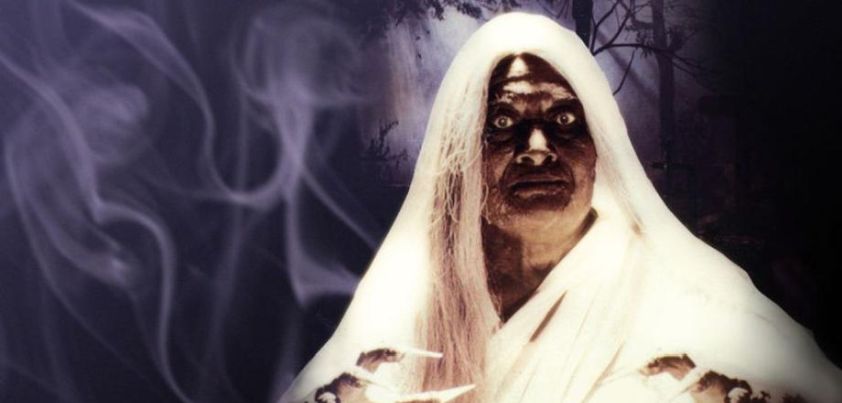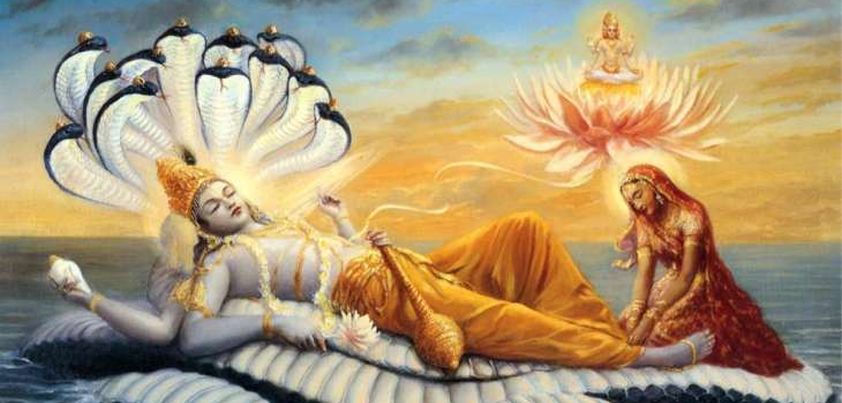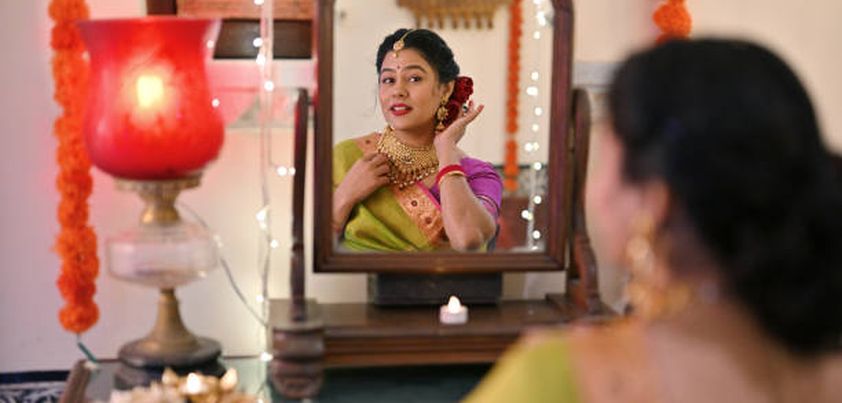 Khushwant Singh’s writing is known for its use of satire and irony in addressing controversial aspects of Indian life. This humorous story is about an admitted “bottom-watcher” who dreams of becoming a “bottom-pincher”. When he encounters a serial bottom-pincher, he becomes obsessed and stalks the man, obtaining vicarious pleasure from his exploits before succumbing to the temptation himself. The major theme is hypocrisy: the facade of respectability adopted by wealthy Indian men who might pop out for a lunchtime “nooner” or engage in other salacious activities. Additional themes: sexual assault (unwanted touching), perversion, obsession, stalking, harassment, temptation, corruption, poverty. More…
Khushwant Singh’s writing is known for its use of satire and irony in addressing controversial aspects of Indian life. This humorous story is about an admitted “bottom-watcher” who dreams of becoming a “bottom-pincher”. When he encounters a serial bottom-pincher, he becomes obsessed and stalks the man, obtaining vicarious pleasure from his exploits before succumbing to the temptation himself. The major theme is hypocrisy: the facade of respectability adopted by wealthy Indian men who might pop out for a lunchtime “nooner” or engage in other salacious activities. Additional themes: sexual assault (unwanted touching), perversion, obsession, stalking, harassment, temptation, corruption, poverty. More…
Archives
The Memsahib of Mandla
 In this story by Khushwant Singh, nature and the ghost of a woman who founded an Indian missionary school combine to drive a British man and his family from a forest officer’s rest house. The rest house was the woman’s home before it was appropriated by the government, and hasn’t been lived in since she died. In addition to being insensitive and chauvinistic, the husband typifies the stereotype of arrogant, self-serving British officials during the Raj. He decides to shoot the ghost, but things don’t turn out as planned. Themes include colonialism, humanitarianism, loyalty, fear, justice, the supernatural. More…
In this story by Khushwant Singh, nature and the ghost of a woman who founded an Indian missionary school combine to drive a British man and his family from a forest officer’s rest house. The rest house was the woman’s home before it was appropriated by the government, and hasn’t been lived in since she died. In addition to being insensitive and chauvinistic, the husband typifies the stereotype of arrogant, self-serving British officials during the Raj. He decides to shoot the ghost, but things don’t turn out as planned. Themes include colonialism, humanitarianism, loyalty, fear, justice, the supernatural. More…
The Mark of Vishnu
 This story from Khushwant Singh contrasts the superstitious beliefs of a poorly educated Hindu servant (Gunga Ram) with the science taught at school to four bratty children. As the title implies, the story revolves around Gunga Ram’s devotion to the god Vishnu and what to him is a sacred snake (Kala Nag). Singh was a self-proclaimed agnostic. The story, and in particular its ironic conclusion, is a satire of organized religion and animist beliefs. Themes: faith, illiteracy, superstition vs. logic, class, (lack of) respect, change. The story’s message: blind faith can lead to disaster. More…
This story from Khushwant Singh contrasts the superstitious beliefs of a poorly educated Hindu servant (Gunga Ram) with the science taught at school to four bratty children. As the title implies, the story revolves around Gunga Ram’s devotion to the god Vishnu and what to him is a sacred snake (Kala Nag). Singh was a self-proclaimed agnostic. The story, and in particular its ironic conclusion, is a satire of organized religion and animist beliefs. Themes: faith, illiteracy, superstition vs. logic, class, (lack of) respect, change. The story’s message: blind faith can lead to disaster. More…
Kusum
 In this story by Khushwant Singh, a young university student belatedly has a sexual awakening. Overweight and physically unattractive, she has compensated by being a model student and good girl with a capital G. Accepting her lot, she has shunned boys and had no interest in sex. That is until her passions are stirred by an accidental encounter with a cheeky young street hawker who makes an obscene, possibly flirtatious gesture at her. She puts on make-up, looks in her mirror, and an attractive, dark-eyed girl smiles back. Themes include identity, self-image, alienation, self-confidence, physical vs. inner beauty, sexuality. More…
In this story by Khushwant Singh, a young university student belatedly has a sexual awakening. Overweight and physically unattractive, she has compensated by being a model student and good girl with a capital G. Accepting her lot, she has shunned boys and had no interest in sex. That is until her passions are stirred by an accidental encounter with a cheeky young street hawker who makes an obscene, possibly flirtatious gesture at her. She puts on make-up, looks in her mirror, and an attractive, dark-eyed girl smiles back. Themes include identity, self-image, alienation, self-confidence, physical vs. inner beauty, sexuality. More…
The Portrait of a Lady
 Published in 1948, Khushwant Singh’s moving tribute to his grandmother was the first story of his long and distinguished writing career. The story spans a period of twenty years, from Singh’s earliest memories of the “so terribly old but always beautiful” woman, to her peaceful passing in almost surreal circumstances. He recalls their close friendship during his early schooling, the “turning point” when they moved to live with his parents in the city, and their growing estrangement as Western influences and higher education demands came between them. Themes: grandmother-grandson relationship (love, devotion), generation gap (education, culture), piety, change. More…
Published in 1948, Khushwant Singh’s moving tribute to his grandmother was the first story of his long and distinguished writing career. The story spans a period of twenty years, from Singh’s earliest memories of the “so terribly old but always beautiful” woman, to her peaceful passing in almost surreal circumstances. He recalls their close friendship during his early schooling, the “turning point” when they moved to live with his parents in the city, and their growing estrangement as Western influences and higher education demands came between them. Themes: grandmother-grandson relationship (love, devotion), generation gap (education, culture), piety, change. More…
Karma
 Sir Mohan Lal, the pretentious high-ranking Indian official in this story by Khushwant Singh, is caught between two cultures. After rejecting his heritage and aspiring to identify with the British ruling class, he cannot escape his “Indian-ness”. His self-important behaviour is contrasted with that of his wife, who he treats with disdain but passively accepts her lot. Ironically, his humiliating treatment on a train (being unceremoniously thrown out of his first class carriage by two drunken British soldiers) highlights the dark side of the world he aspires to. Themes include identity, cultural alienation, social class, colonialism, narcissism, prejudice, humiliation. More…
Sir Mohan Lal, the pretentious high-ranking Indian official in this story by Khushwant Singh, is caught between two cultures. After rejecting his heritage and aspiring to identify with the British ruling class, he cannot escape his “Indian-ness”. His self-important behaviour is contrasted with that of his wife, who he treats with disdain but passively accepts her lot. Ironically, his humiliating treatment on a train (being unceremoniously thrown out of his first class carriage by two drunken British soldiers) highlights the dark side of the world he aspires to. Themes include identity, cultural alienation, social class, colonialism, narcissism, prejudice, humiliation. More…